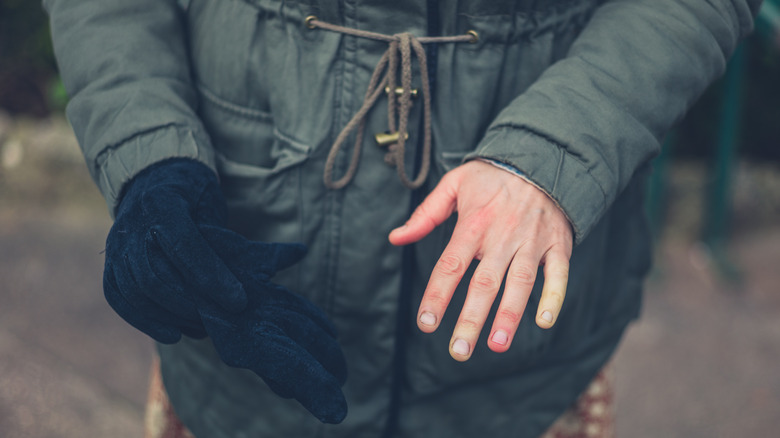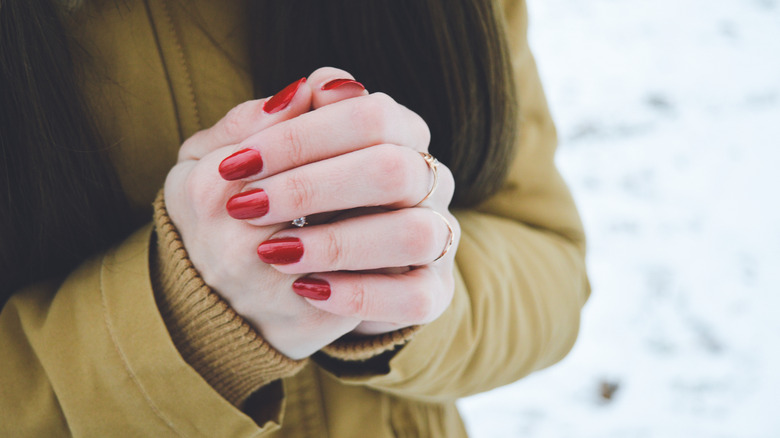What Does It Mean When Your Hands Are Always Cold?
It's normal to have cold hands in the winter or when the AC is a little too strong. Usually, throwing on some gloves or moving your body does the trick. But if your hands are constantly cold, it may seem like nothing will help to warm them up. Then, you're left with numb fingers, pain in your hands, or, at best, an icy handshake.
According to Cleveland Clinic, cold hands are often the result of a lack of blood flow to the extremities. This is a normal response to frigid temperatures, when the muscles around the arteries tighten to conserve heat in the body's core. This can also happen during a fever, especially for children. When a small child is fighting a virus, their body may carry blood to the infection, leaving the hands and feet icy cold.
Even for the healthiest of people, cold hands are a normal bodily response. However, if your hands are constantly freezing, a health condition may be the culprit.
Cold hands could be caused by Raynaud phenomenon
Certain underlying conditions, like thyroid issues or anemia, can make some people feel cold all the time. But if you're only noticing a chill in your hands and fingers, it might be a condition called Raynaud phenomenon, or Raynaud's (via MedlinePlus). With Raynaud's, the blood vessels in the hands constrict excessively, limiting the flow of blood and oxygen. Then, the hands become cold to the touch, and you might notice a blue tint under the nail beds. In some cases, fingers may even turn white and go numb. Once the hands regain circulation, they might turn bright red and feel burning hot.
According to Mayo Clinic, Raynaud phenomenon can be genetic, but there are several other causes to consider. This condition is often just one sign of another disease or condition, such as lupus or rheumatoid arthritis. Other times, Raynaud's may be triggered by chronic stress or spending too much time in frigid temperatures.
It can be difficult to pinpoint the cause all on your own. If your hands are always cold, be sure to visit your doctor to rule out other health issues that may be causing them. And until then, continue bundling up, staying active, and finding healthy ways to bust stress.


